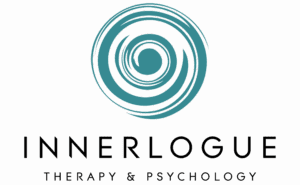In many Asian families, values like filial piety, sacrifice, and silence are often deeply ingrained. While these cultural pillars have helped generations survive adversity, they can also mask emotional wounds passed down quietly from parent to child. These wounds, known as intergenerational trauma, can silently shape identities, relationships, and even physical health.
What is Intergenerational Trauma?
Intergenerational trauma refers to psychological and emotional wounds that are passed from one generation to the next. These can stem from collective experiences such as war, colonization, displacement, poverty, or cultural suppression—experiences not uncommon in many parts of Asia.
For example, survivors of the Vietnam War, Partition of India, or the Japanese occupation during WWII may not speak about their pain, but they often pass down fear-based behaviors, anxiety, or high expectations as coping mechanisms. Their children, raised in the shadow of unspoken grief or pressure, may experience chronic stress, perfectionism, or emotional disconnection—without knowing why.
Trauma as itself, triggers trauma responses in your body that can be chronic. While these responses are crucial and useful in short-term situations, being on “survival mode wears down both physical and mental health in the long term.
Cultural Silence and Stigma
Many Asian cultures emphasize resilience, emotional restraint, and the importance of family honor. While these values can be strengths, they may also contribute to:
- Minimizing mental health struggles (“Just be strong.”)
- Avoiding open conversations about emotions
- Stigmatizing therapy or psychiatric help
In many families, the older generation might not even understand the concept of mental health. A 2022 study by Mental Health America found that Asian Americans are three times less likely to seek mental health services than their white counterparts, despite reporting similar or higher levels of psychological distress.
Signs of Intergenerational Trauma in Asian Families
Some common patterns that may point to inherited trauma include:
- High levels of achievement pressure and fear of failure
- Difficulty expressing vulnerability or setting boundaries
- Guilt around individual needs or independence
- Repeated family conflict with no clear resolution
- Persistent anxiety, even in the absence of immediate stressors
These patterns often feel “normal” because they’ve existed for generations—but that doesn’t mean they’re healthy or unchangeable. Intergenerational trauma can also caused PTSD-like symptoms
The Path to Healing: What Treatment Looks Like
Healing intergenerational trauma requires both compassionate reflection and active treatment. Here’s how therapy can support this process:
1. Culturally Sensitive Therapy
Working with a therapist who understands the nuances of Asian family dynamics is crucial. At Innerlogue, our culturally attuned clinicians are trained to honor both traditional values and modern therapeutic techniques, creating a safe space for clients to unpack complex emotions without judgment.
2. Inner Child and Family Systems Work
Exploring family roles and reconnecting with your inner child helps illuminate emotional patterns inherited from parents and grandparents. Through Internal Family Systems (IFS) or Emotionally Focused Therapy (EFT), clients learn to differentiate their voice from inherited narratives.
3. Somatic Approaches
Trauma is not just held in the mind—it lives in the body. Somatic therapy and mindfulness practices help clients notice and release the physical manifestations of trauma (like tension, headaches, or digestive issues) rooted in generational stress.
4. Psychoeducation and Narrative Work
Learning about the history behind your family’s struggles can be empowering. Clients are guided to rewrite their stories with clarity and compassion, breaking cycles of shame or silence.
Did You Know?
-Trauma can be epigenetic. Studies show that trauma can alter gene expression—meaning the effects of trauma can be biologically passed down to children.
–1 in 5 Asian Canadians experiences a mental health challenge, but only a small percentage seek professional help.
– Bilingual therapy can support deeper emotional expression, especially when discussing childhood or family dynamics in a native language.
Moving Forward with Hope
Processing Asian intergenerational trauma is not about blaming our parents or rejecting our heritage. It’s about honoring what was survived while choosing what continues. It’s about reclaiming emotional agency, healing hidden wounds, and creating healthier legacies for future generations.
At Innerlogue, we are here to walk beside you as you process your past and shape your future—with empathy, expertise, and cultural humility. We have a culturely diverse team here to assist you in moving forward.
Ready to begin your healing journey?
Contact us for a free 15-minute consultation with one of our therapists specializing in intergenerational trauma and Asian cultural identity.


